No foreign trash! Starbucks paper cups face garbage disposal crisis, China no longer accepts foreign garbage
Professional coffee knowledge exchange more coffee bean information please follow the coffee workshop (Wechat official account cafe_style)
A cruise ship loaded with thousands of tons of solid waste set sail from the wharf of a certain country and arrived on the high seas to meet people for dealing. when it landed again, it was already at the port of our country, evading customs supervision by means of false reports, concealing reports, and hiding, or "bypassing customs" directly, that is, bypassing the customs and entering the country privately. Over the past few decades, under the temptation of profiteering, such scenes have been repeated between foreign garbage smugglers and our customs.
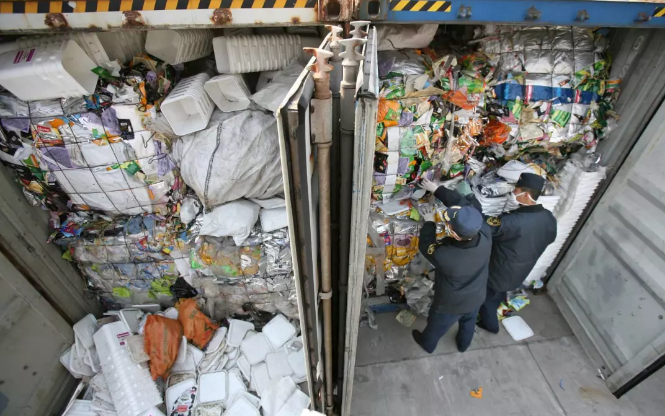
Foreign garbage seized by Guangzhou Customs
In July last year, the General Office of the State Council issued the implementation Plan for banning the entry of Foreign garbage and promoting the Reform of the Import Management system of solid waste, proposing a total ban on the entry of foreign waste and improving the management system of imported solid waste. we will earnestly strengthen the management of solid waste recycling.
According to the implementation plan, China will completely ban the import of solid waste that is harmful to the environment and strongly reflected by the public by the end of 2017, and gradually stop importing solid waste that can be replaced by domestic resources by the end of 2019.
The harm of foreign garbage is far-reaching
"Foreign garbage" is a common term, not a professional term, especially refers to the import of solid waste prohibited by the state by means of smuggling or entrainment, or the import of solid waste which is restricted by import without permission.
According to the announcement No. 36 of 2009 of the Ministry of Environmental Protection, there are 12 major items and more than 80 small items of prohibited solid waste, that is, real foreign waste, including waste animal and plant products, slag, ash and residue, waste mechanical and electrical products and equipment, etc. In addition, there are 10 major items and more than 50 small items of solid waste, such as waste textile materials, waste plastics and so on.
Documentary director Wang Jiuliang has investigated many provinces along China's coast and found that plastic waste illegally entering China every year comes from the United States, Germany, France, Australia, South Korea and other countries. "this waste eventually enters the large and small waste plastic recycling plants along China's coast and is recycled in an extensive way, which leads to environmental pollution problems."
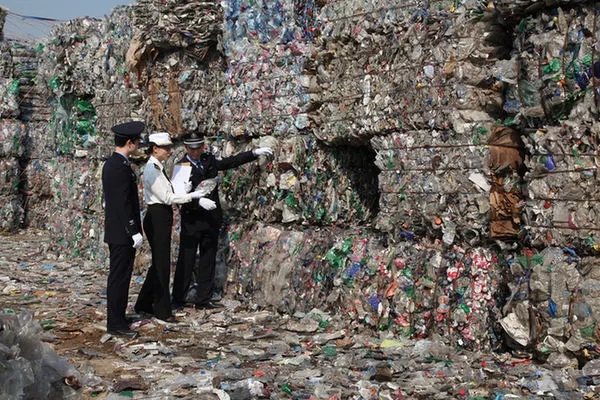
In illegal garbage disposal workshops, workers sort garbage by hand.
Experts said that many imported solid wastes, including foreign garbage, have low prices, and many of the renewable resources processing and utilization enterprises using them as raw materials are "scattered, disorderly, and polluted" enterprises, and their pollution control capacity is low, and most of them do not even have pollution control facilities. pollution emissions from processing and utilization seriously damage the local ecological environment. Viruses, bacteria and other toxic and harmful substances carried by foreign garbage may directly infect employees.
At present, the foreign waste entering our country mainly includes industrial waste such as waste slag, waste catalyst, waste tire, waste battery, electronic waste, as well as old clothing, construction waste, domestic waste, medical waste and hazardous waste. After layers of packaging, many of these foreign rubbish openly enter the homes of ordinary people.
Profiteering gives birth to malformed industrial chain
According to the Daily Telegraph, in 2012 alone, 17 containers with a total weight of 420 tons of domestic waste were shipped to Asia, 70% of which were confirmed to be shipped to Asian countries, including China. According to the data of the United States International Trade Commission, in 2011, China's imports of waste from the United States reached 11.54 billion US dollars, accounting for 11.1 percent of China's total imports from the United States.
The exorbitant profits from the sale of foreign waste have given birth to a malformed industrial chain: waste eliminated by developed countries-low-cost imports from developing countries-sorting, renovation or maintenance-resale to Chinese people. Among them, each link is profitable: first, foreign suppliers, who sell garbage to foreign buyers at very low prices and receive subsidies from government departments for waste disposal; for middlemen, they can make a lot of profits by selling garbage; as for domestic importers, they mainly make profits from sorting and selling imported waste.
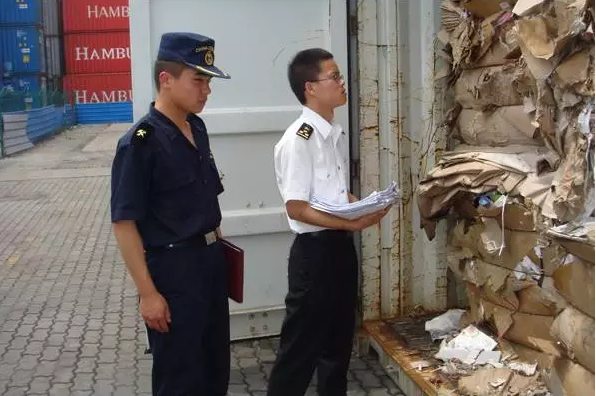
Anti-smuggling officers of Huangpu Customs are investigating and dealing with the smuggling of solid waste
Some people have roughly calculated such an account: the CIF price per ton of foreign garbage is US $140,10 of which is paid to the middleman, plus import taxes and other fees, the cost per ton is between 1000 and 1100 yuan. The market sales price of the waste paper sorted out is about 2000 yuan per ton, and the market sales price of milk bottles, mineral water bottles and other plastic products is between 7000 yuan and 10000 yuan per ton. The market price of the sorted aluminum cans is about 4000 yuan / ton.
Liu Jianguo, a professor at the School of Environment at Tsinghua University, said that according to the Basel Convention on the Control of Transboundary movements of Hazardous wastes and their disposal, all transboundary movements of hazardous wastes can only be carried out with the consent of importing and exporting countries. "but facts show that this convention has become a piece of paper."
European and American countries were caught off guard.
The West was caught off guard after China announced a ban on imports of foreign garbage. Because many garbage exporting countries do not have adequate infrastructure, it is difficult to fully achieve the recycling of waste and garbage.
At a recycling bin in the US state of Oregon, the headline used "chaos" to describe the current recycling situation in the United States as a result of the Chinese ban.

The three persons in charge of the recycling bin looked helpless in front of the garbage mountain. It is understood that 980 tons of garbage should have arrived in China a week ago, but it is still in the recycling bin.
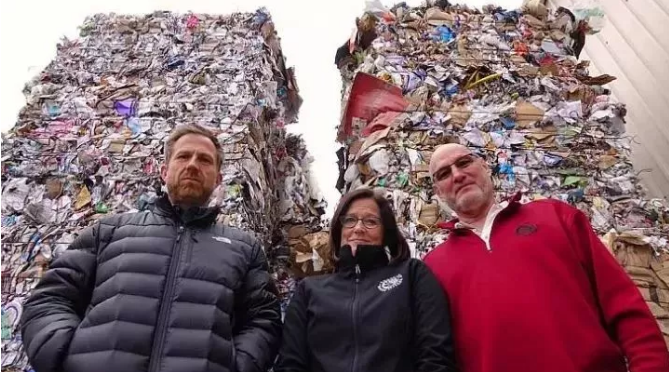
Starbucks paper cups face garbage disposal crisis
According to the official Wechat account "Silicon Man", "behind 4 billion cups of coffee a year, Starbucks is quietly murdering the earth." it is known that Starbucks disposable paper cup waste, in addition to being transported to landfills in the United States, there is also part of the "export" to China. Without Chinese buyers, American "recyclables" have become rubbish.
Seattle is one of the few cities in the United States with the recycling capacity of polyethylene-coated paper cups, but Starbucks still relies heavily on landfills in its stronghold.
Driving north from Seattle is about an hour's drive to a special waste disposal plant, where facilities use organic technology to degrade waste. The treatment rooms are covered with thick waterproof cloth, like a greenhouse, where bacteria erode the sorted garbage, emitting extremely high temperatures and a special smell.

Hidagrov Landfill Industry, a professional garbage company
A certain proportion of Starbucks' waste comes to the factory, where scraps of food from paper cups, cardboard boxes and discarded napkins are degraded by bacteria to make a popular commodity for consumers: soil or fertilizer for planting.
But that still doesn't meet the needs of Starbucks, which produces too much garbage every day-- many of which lack reasonable classification.
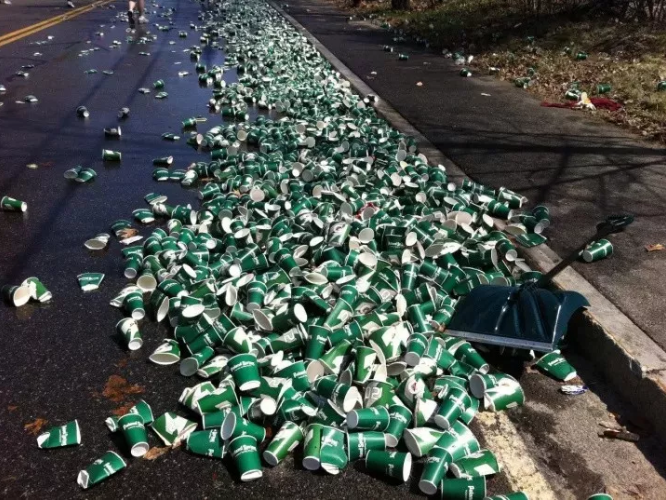
Photo Source: Silicon Man
As a result, a large number of paper cups are sent to local landfills in Washington state, or to ordinary landfills in southern Oregon, packed in air-insulated bags, buried underground and forgotten forever.
Or there is another way out:
Together with garbage such as packing boxes, it is exported to waste paper factories in China in the name of waste paper or mixed waste.
Starbucks' international trade in waste creates problems in both countries: China's recycled paper recycling process and production capacity are slightly better than those in the United States, but after all, China is Starbucks' second largest and fastest-growing market. The local recycled paper industry has received a lot of Starbucks waste.
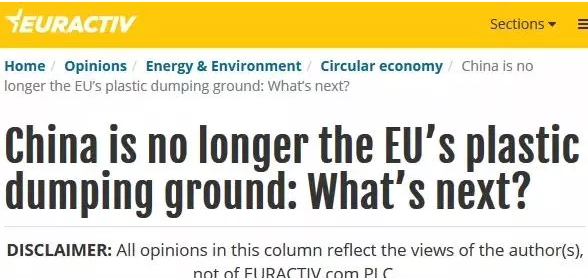
As it has been exported to China, there is no infrastructure for recycling at all, so the "recycled products" of the White City garbage station exploded in a week and were piled out in the wind and sun.
These things can only be waste by American standards, and he is waiting for the government to approve his application for landfill. Of course, he is only one of many who applied for the Recycle Bin.
Last year, they exported more than 1 million tons of plastic waste to China, worth hundreds of millions of US dollars. The sudden ban will be too much for 01:30.
An American environmental protection group once conducted a survey: put 200 trackers on discarded electronic products in the United States and found that most of them crossed the sea to Asia, of which 10 came to mainland China and 36 stayed in Hong Kong!
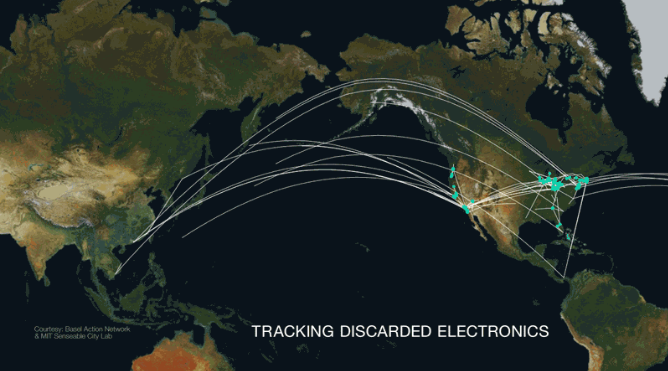
Europe is also anxious. China is no longer a "garbage disposal site". What's the next step?
Europe is anxiously discussing where to put about 3000000 tons of plastic waste, as a considerable proportion of it was previously exported to China. Europe, known as the center of world civilization, while advocating environmental protection, produces a considerable proportion of the world's garbage.
In a recycling bin in Belgium, there is a large amount of plastic waste that was supposed to be in China.
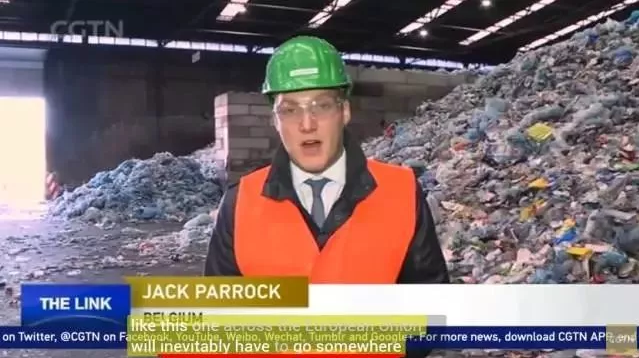
Since 2012, the UK has exported 2700000 tons of waste plastic to China, accounting for 2. 3% of the UK's total plastic exports. China's ban means that the UK may need to immediately increase its waste disposal capacity by 350000 tonnes a year to make up for the shortfall.
Some experts said: "the problem of smuggling 'foreign garbage' has been banned repeatedly because of exorbitant profits. A pack of hundreds of used clothes from abroad may not be worth much, but after being smuggled into China, after sorting and sorting, each piece can be sold at a price of tens or even hundreds of yuan. "
In the past, China imported not only about 25% of Britain's waste plastic, but also 55% of Britain's waste paper. In the UK, there are no strict sorting standards for domestic waste disposal in some places, which is the focus of China's ban. In the 25-year long-term environmental protection plan to be submitted in early 2018, Gowu will propose a new tax on plastic waste. It is reported that Gowu's plan to sell will impose heavy taxes on "single-purpose plastics" such as straws and coffee cups, and charge a small deposit on plastic packaging such as cola bottles, which users can get back when they return plastic bottles.
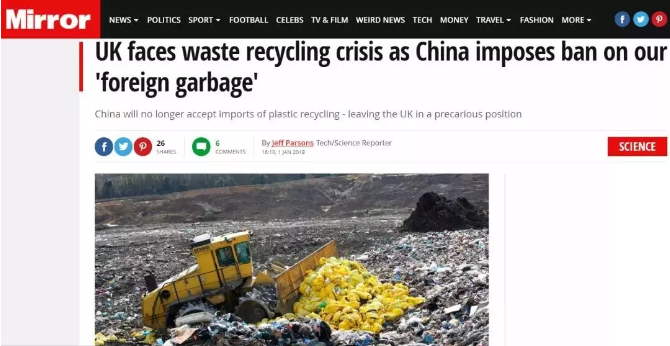
In the past, China was the world's largest importer of garbage. Now, China no longer accepts foreign garbage. China has long suffered from white pollution and is fed up with the import of foreign garbage.
We don't want it!
No!
Don't make a fuss!
Important Notice :
前街咖啡 FrontStreet Coffee has moved to new addredd:
FrontStreet Coffee Address: 315,Donghua East Road,GuangZhou
Tel:020 38364473
- Prev

No problem, going to Starbucks to take pictures is both pretentious and low!
Why do you always take pictures when you go to Starbucks? people in moments like to do this. @ lemon starry doesn't pretend to be forced. I really feel that when I was 20 years old, I first entered Starbucks for the first cup of Starbucks toffee hazelnut coffee. 36 yuan a cup had the idea of wanting to go in many times, but I always felt too expensive, many times without luxury, courage, and liked the mellow smell of coffee, even though Starbucks didn't have it abroad.
- Next

How to make coffee? How to make coffee?
Professional barista exchanges, please pay attention to coffee workshop (Weixin Official Accounts cafe_style) espresso originated in Italy, in Italian means "very fast," through the pressure of steam, instant coffee extraction. Because this practice can last for a long time coffee fat, taste mellow thick, sour and bitter balance, so called coffee
Related
- What brand of black coffee is the most authentic and delicious? what are the characteristics of the flavor of the authentic Rose Summer Black Coffee?
- Introduction to the principle and characteristics of the correct use of mocha pot A detailed course of mocha pot brewing coffee is described in five steps.
- Which is better, decaf or regular coffee? how is decaf made?
- How much is a bag of four cat coffee?
- How about four Cat Coffee or Nestle Coffee? why is it a cheap scam?
- Which is better, Yunnan four Cats Coffee or Nestle Coffee? How about cat coffee? is it a fake scam? why is it so cheap?
- How about Cat Coffee? what grade is a hoax? which instant coffee tastes better, four Cat Coffee, Nestle Coffee or G7 coffee?
- Process flow chart of coffee making-Starbucks coffee making process what coffee tastes good at Starbucks
- The top ten best coffee beans in the world Rose summer coffee or Tanzanian coffee tastes good
- Yunnan four cat coffee is good to drink?_four cat coffee is a big brand? four cat blue mountain coffee is fake?

